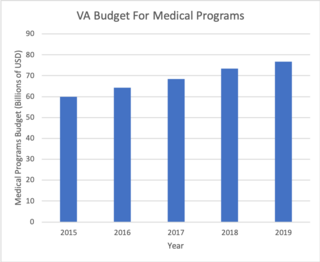Obstetrics and gynaecology is the medical specialty that encompasses the two subspecialties of obstetrics and gynaecology. The specialization is an important part of care for women's health.

Medicare is an unofficial designation used to refer to the publicly funded single-payer healthcare system of Canada. Canada's health care system consists of 13 provincial and territorial health insurance plans, which provide universal healthcare coverage to Canadian citizens, permanent residents, and depending on the province or territory, certain temporary residents. The systems are individually administered on a provincial or territorial basis, within guidelines set by the federal government. The formal terminology for the insurance system is provided by the Canada Health Act and the health insurance legislation of the individual provinces and territories.

Health care, or healthcare, is the improvement of health via the prevention, diagnosis, treatment, amelioration or cure of disease, illness, injury, and other physical and mental impairments in people. Health care is delivered by health professionals and allied health fields. Medicine, dentistry, pharmacy, midwifery, nursing, optometry, audiology, psychology, occupational therapy, physical therapy, athletic training, and other health professions all constitute health care. The term includes work done in providing primary care, secondary care, and tertiary care, as well as in public health.

The healthcare industry is an aggregation and integration of sectors within the economic system that provides goods and services to treat patients with curative, preventive, rehabilitative, and palliative care. It encompasses the creation and commercialization of products and services conducive to the preservation and restoration of well-being. The contemporary healthcare sector comprises three fundamental facets, namely services, products, and finance. It can be further subdivided into numerous sectors and categories and relies on interdisciplinary teams of highly skilled professionals and paraprofessionals to address the healthcare requirements of both individuals and communities.

The Health Insurance Portability and Accountability Act of 1996 is a United States Act of Congress enacted by the 104th United States Congress and signed into law by President Bill Clinton on August 21, 1996. It aimed to alter the transfer of healthcare information, stipulated the guidelines by which personally identifiable information maintained by the healthcare and healthcare insurance industries should be protected from fraud and theft, and addressed some limitations on healthcare insurance coverage. It generally prohibits healthcare providers and businesses called covered entities from disclosing protected information to anyone other than a patient and the patient's authorized representatives without their consent. The bill does not restrict patients from receiving information about themselves. Furthermore, it does not prohibit patients from voluntarily sharing their health information however they choose, nor does it require confidentiality where a patient discloses medical information to family members, friends or other individuals not employees of a covered entity.

The Veterans Health Administration (VHA) is the component of the United States Department of Veterans Affairs (VA) led by the Under Secretary of Veterans Affairs for Health that implements the healthcare program of the VA through a nationalized healthcare service in the United States, providing healthcare and healthcare-adjacent services to veterans through the administration and operation of 146 VA Medical Centers (VAMC) with integrated outpatient clinics, 772 Community Based Outpatient Clinics (CBOC), and 134 VA Community Living Centers Programs. It is the largest division in the department, and second largest in the entire federal government, employing over 350,000 employees. All VA hospitals, clinics and medical centers are owned by and operated by the Department of Veterans Affairs, and all of the staff employed in VA hospitals are federal employees. Because of this, veterans that qualify for VHA healthcare do not pay premiums or deductibles for their healthcare but may have to make copayments depending on the medical procedure. VHA is not a part of the US Department of Defense Military Health System.
Single-payer healthcare is a type of universal healthcare in which the costs of essential healthcare for all residents are covered by a single public system.

The United States Navy Medical Service Corps is a staff corps of the U.S. Navy, consisting of officers engaged in medical support duties. It includes healthcare scientists and researchers, comprising around 60% of its personnel, and healthcare administrators, comprising the remaining 40%. Many of the latter are former enlisted hospital corpsmen, the Medical Service Corps Inservice Procurement Program (MSC-IPP) being one of several routes from enlisted service to commissioned status. The Medical Service Corps has around 2,600 serving commissioned officers.

The Agency for Healthcare Research and Quality is one of twelve agencies within the United States Department of Health and Human Services (HHS). The agency is headquartered in North Bethesda, Maryland, a suburb of Washington, D.C.. It was established as the Agency for Health Care Policy and Research (AHCPR) in 1989 as a constituent unit of the Public Health Service (PHS) to enhance the quality, appropriateness, and effectiveness of health care services and access to care by conducting and supporting research, demonstration projects, and evaluations; developing guidelines; and disseminating information on health care services and delivery systems.

International Nurses Day (IND) is an international day observed around the world on 12 May each year, to mark the contributions that nurses make to society.
A health professional, healthcare professional, or healthcare worker is a provider of health care treatment and advice based on formal training and experience. The field includes those who work as a nurse, physician, physician assistant, registered dietitian, veterinarian, veterinary technician, optometrist, pharmacist, pharmacy technician, medical assistant, physical therapist, occupational therapist, dentist, midwife, psychologist, audiologist, or healthcare scientist, or who perform services in allied health professions. Experts in public health and community health are also health professionals.
Health information management (HIM) is information management applied to health and health care. It is the practice of analyzing and protecting digital and traditional medical information vital to providing quality patient care. With the widespread computerization of health records, traditional (paper-based) records are being replaced with electronic health records (EHRs). The tools of health informatics and health information technology are continually improving to bring greater efficiency to information management in the health care sector.

The Ministry of Health is the ministry of the Government of Turkey responsible for proposing and executing the government policy on health, planning and providing healthcare and protecting consumers. Likewise, it is responsible for proposing and executing the government policy on social cohesion and inclusion, family, protection of minors, youth and of care for dependent or disabled persons. The Ministry is headquartered in the Bakanlıklar in Ankara.
Health is a level of functional and/or metabolic efficiency and may also refer to:
Benenden Health is a not-for-profit mutual society in the UK providing private medical cover. Its membership consists of over 800,000 individuals and employees of corporate schemes provided by them. Benenden Health was the shirt sponsor of York City Football Club from the 2012–13 season until the 2018-2019 season.
The healthcare reform debate in the United States has been a political issue focusing upon increasing medical coverage, decreasing costs, insurance reform, and the philosophy of its provision, funding, and government involvement.
Healthcare rationing in the United States exists in various forms. Access to private health insurance is rationed on price and ability to pay. Those unable to afford a health insurance policy are unable to acquire a private plan except by employer-provided and other job-attached coverage, and insurance companies sometimes pre-screen applicants for pre-existing medical conditions. Applicants with such conditions may be declined cover or pay higher premiums and/or have extra conditions imposed such as a waiting period.
Healthcare in the United States is largely provided by private sector healthcare facilities, and paid for by a combination of public programs, private insurance, and out-of-pocket payments. The U.S. is the only developed country without a system of universal healthcare, and a significant proportion of its population lacks health insurance.








